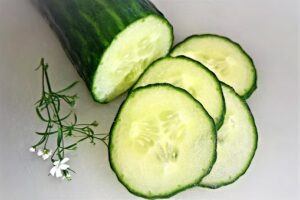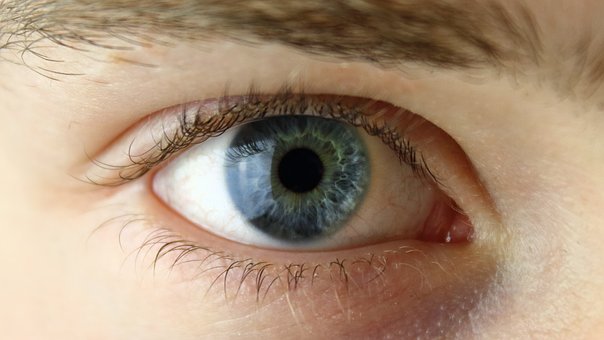The eye is one of the frail parts of the body aside from the brain. They are your guide to the world, and as such, you need to take good care of them by using some natural remedies for eye care.
Most eye problems like black eyes, puffy eyes, wrinkles, and dark circles arise from our lifestyles and everyday activities. They may be mild eye conditions, but they can lead to severe and life-threatening medical conditions. According to the National Eye Institute (NEI), From 2010 – 2050, the number of people with eye problems is expected to double from 24.4 million to 50 million. Huge, right? But this is not to scare you. It is to let you know that there is no better time to take care of your eyes than now.
Although many eye problems require an ophthalmologist’s attention, following simple and inexpensive natural remedies for eye care is all you need to reduce your chance of having vision-related issues and combating some eye infections.
We believe in natural remedies for eye care because they are cost-effective, have little or no side effects, and show results faster. Continue reading to find out more about ways you can fight common eye problems. But before that, check out the tips below for your eye care.

1. Include vegetables and fruits into your diet
Maintaining good eyes start with the food you eat. When you Incorporate citrus fruits and leafy green vegetables into your diet, you open yourself to getting essential vitamins, like vitamin C, zinc, lutein, antioxidants, and minerals your eyes need to stay strong and healthy. The fruits and vegetables are carrots, sweet potatoes, oranges, lime, broccoli, onions, and tomatoes.

2. Use Sunglasses
Sunglasses are not just for fashion; they help protect the eyes from adverse sun’s ultraviolet (UV) rays. Constant exposure to sunlight can increase your chance of getting contaract or age-related vision problems like macular degeneration. So, when next you go shopping, choose eyeglasses that block UVA and UVB by 90% or entirely.

3. Safety Eyewear
Safety eyewear is not just for company workers who deal with hazardous materials and chemicals. If you use harmful airborne materials at home, wear your gloves and protective goggles to block dangerous substances from getting into your eyes. Also, you should wear helmets with safety glasses when playing sports like ice hockey and racquetball.

4. Minimize your Screen Glance
Understandably, our digital and technological world has compelled us to stare at our phones’ screens, computers, and television screens a lot more than ever. Gazing at your screens for long damages your eyes, leading to conditions like eye strain, blurred vision, headache, and inability to move the eyes. Check below for some tips to protect your eyes from screens.
- Get customized screen glasses.
- Confirm from your ophthalmologist if your glasses or contact lens is suitable for screens.
- Move your screens up a bit to avoid you looking down to watch things on your screen.
- Sit in a comfortable chair or bed whenever you use your gadgets.
- Blink more to get rid of dry eyes.
- Take intermittent breaks while using your screens and take at least a15 minute walk.
5. Avoid Touching your Eyes
One important lesson the recent pandemic taught us is that touching your eyes frequently can increase its chance of getting infected. Stop rubbing your eyes vigorously and consistently whenever you are tired. If you need to rub your eyes – probably remove specks of dirt – wash your hands with clean water or use sterile saline solution to rinse your eyes as it removes loose debris.

6. Quit Smoking
Most people know smoking to be the cause of heart-related infections and lung cancer. However, smoking can also damage the eyes. Research has revealed that smokers are likely to develop age-related eye diseases like macular degeneration, cataracts, glaucoma, and dry eye syndrome than non-smokers. The best solution is to quit smoking.
7. Wash Your beddings
Wash Your towels, bed linen, and pillowcases often if you have an eye infection. Since your linens come in contact with the infected eyes, you have a high chance of spreading eye infections. To fully get rid of bacteria on your linens, use warm water and detergent to clean them, and ensure it gets dry well.
Natural Remedies for Eye Care

1. Cucumber
Have you ever wondered why masseuse specialists place slices of cucumber on clients’ eyes? The answer is that cucumber has a natural cooling property, and it gets rid of dark circles around the eyes. It can also reduce eye puffiness and irritation in the eyes. Another way to use cucumber is to blend it. Then dip a cotton pad into the cucumber juice and place it on closed eyes (not directly on the eyes).

2. Teabags
The use of teabags is one of the most cost-effective and natural remedies for eye care. Instead of discarding your tea bags after making tea, you can place them over your eyes to fight irritation and dark circles around your eyes. Researchers have found that the antioxidants and caffeine in black and green tea may help avoid irritation, lighten dark circles and reduce puffiness. Check below for how to use tea bags to care for the eyes.
- To use tea bags, boil them like you would for drinking.
- After some minutes, remove the tea bags, and squeeze the liquid out.
- Allow the bags to cool down or put in the freezer for fast action.
- Then apply them to your closed eyes. This method will help cool and calm your eyes in no time.
3. Cold Compress
Cold compress is the easiest of all the natural remedies for eye care. If you are dealing with eye puffiness, apply a clean towel or piece of cloth, and dab with cold water. Sit on a well-cushioned chair or bed and put the towel to the eyes. Gently massage the towel around and under the eyes for at least 10 minutes. Repeat this process as many times as possible till you see some changes.
4. Warm Compress
The same way cold compress work is the same way warm compress does. If you have irritation or eyesores, a warm compress can help alleviate the symptoms. The American Academy of ophthalmologists suggested that a warm compress can calm conjunctivitis (pink eye). In the same vein, another research stated that a warm compress soothes styes. Below are straightforward tips on how to make a warm compress.
- Get a clean cloth and a tub of warm water. ● Dip the piece of cloth gently inside the tub.
- Wring or squeeze it and apply it gently to the eyes.
- Make sure the clothing is clean to avoid exposure to germs.
- Do not press too hard on the eyes or put the cloth directly on your eyelid.

5. Potato Juice
Waking up with dark circles can sometimes be embarrassing. Thankfully, potatoes juice can help you reduce that. All you need is to blend raw potatoes and use a cotton bud to apply the potato juice under the eye area. You can as well place some slices of potatoes on your closed eyes for a few minutes. Within a few days, you will see some progress.

6. Almond Oil and Honey
Even though a sunken eye is mostly a result of old age, you can get rid of it. All you need is to get original almond oil and honey. Mix a teaspoon of the ingredients until you get a fine paste. Gently apply the combination under the eyes area before bedtime and make sure you wash it off in the morning before stepping out. You can also switch honey with lime juice, then use the same process.
7. Monitor your Blood Pressure and Cholesterol Level
Being obese increases the risk of inflammation and high blood pressure, diabetes, and arterial diseases – all of which are eyes’ enemies. Specifically, high blood pressure sometimes leads to blood vessel damage that causes loss of sight. Besides, it can also lead to fluid build-up under the eye area, ultimately leading to vision impairment.
8. Saline
I am sure you must have heard that tears clean the eyes of bacteria. This statement is true! Saline is the same as salt water, and tears contain salt that has anti-microbial properties. Due to this, it is only expected for saline to treat eye infections. Doctors can recommend saline, and you can get it over the counter.
9. See Your Doctor
Visiting your ophthalmologist for an eye test will protect your eyes and help your doctor to see imminent eye problems like glaucoma that shows no symptoms on time. Fortunately, there are two kinds of doctors you can see – ophthalmologist and optometrist.
An ophthalmologist is a doctor that focuses on eye can. Among others, they give general eye care, perform eye surgery and cure eye diseases. However, an optometrist provides eye care, diagnose eye problems, but does not operate on eyes.
Conclusion
Eyes are panes with which we view the world, so there is no better time to take care of them than now. While many eye infections require the doctor, you can treat those such as conjunctivitis, black eye, and dark circles with natural home remedies for eye care.

